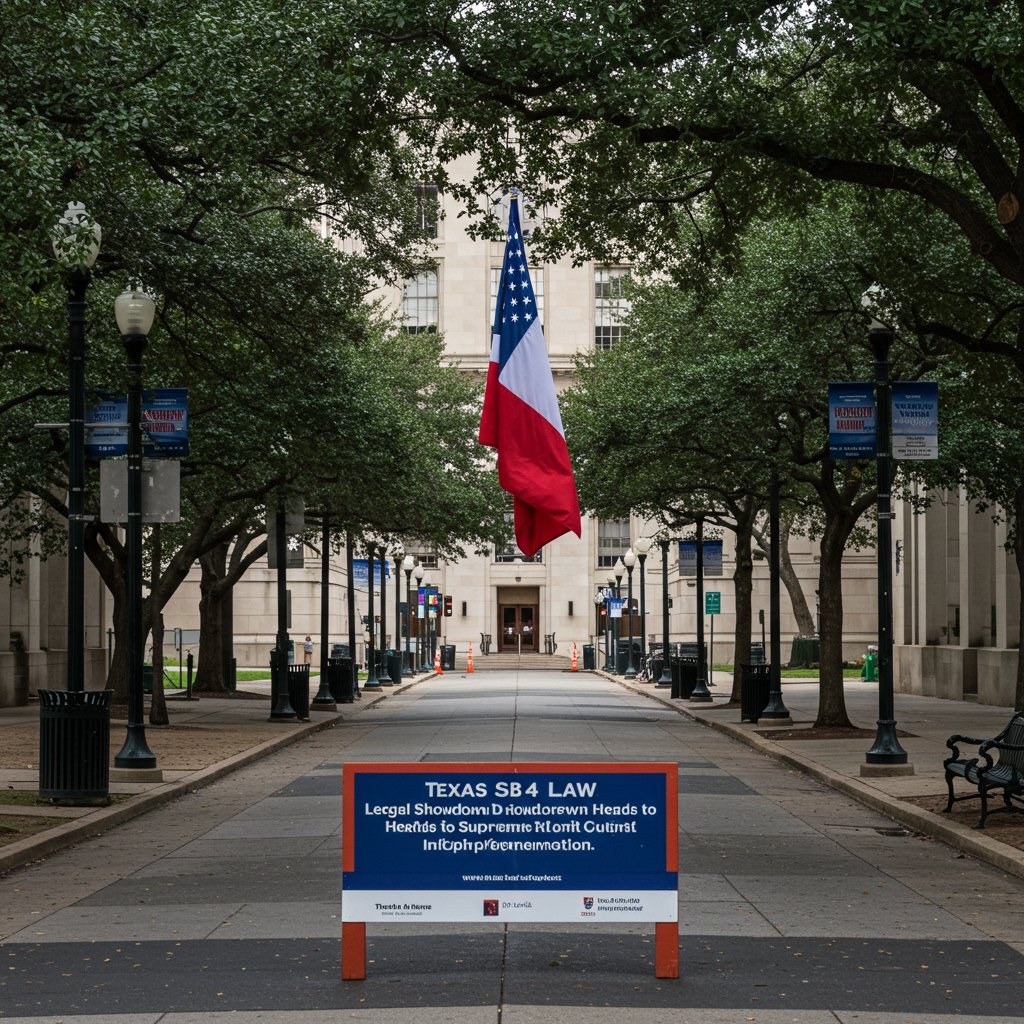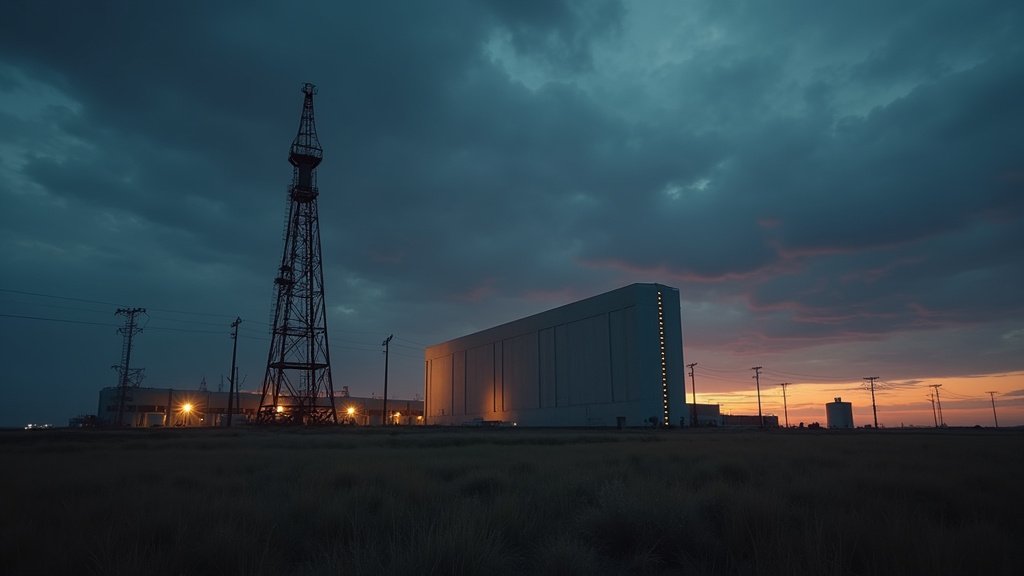Legal Battle Intensifies Over Texas Immigration Law SB4
The complex and high-stakes legal battle surrounding Texas’s controversial immigration law, Senate Bill 4 (SB4), has reached a critical juncture following a decision by the Fifth Circuit Court of Appeals. On February 23, the appellate court issued a ruling that temporarily allowed significant portions of SB4 to take effect, overriding a previous statewide injunction imposed by a lower federal court. This development has immediately escalated the legal conflict between the state of Texas, led by Attorney General Ken Paxton, and the U.S. Department of Justice (DOJ), setting the stage for a likely showdown at the nation’s highest court.
SB4, enacted by the Texas Legislature, seeks to empower state and local law enforcement to arrest, detain, and prosecute individuals who illegally enter or re-enter Texas from a foreign country. The law also includes provisions that would allow state judges to issue orders for individuals to be removed from the United States, directing them to ports of entry. Proponents in Texas argue the law is a necessary response to what they perceive as a failure of the federal government to adequately secure the southern border, asserting the state’s inherent authority to defend itself.
The Fifth Circuit’s Decision and Immediate Aftermath
The Fifth Circuit’s February 23 ruling did not make a final determination on the constitutionality of SB4. Instead, it granted a request from the state of Texas to stay, or pause, the preliminary injunction that a lower federal court had previously issued. U.S. District Judge David Ezra in Austin had blocked SB4 in its entirety on February 29, agreeing with the DOJ and other plaintiffs that the law likely violates the U.S. Constitution because federal law preempts state authority over immigration matters. Judge Ezra’s order prevented the law from taking effect as scheduled on March 5.
However, the Fifth Circuit’s three-judge panel, in a two-to-one decision, determined that Texas had demonstrated a sufficient likelihood of success on appeal regarding certain aspects of the law to warrant lifting the injunction temporarily. This means that while the full appeal process continues, the state is permitted to implement and enforce the contested provisions of SB4. The dissenting judge argued strongly against allowing the law to take effect, citing concerns about its potential impact and the lower court’s reasoning on federal preemption.
The immediate consequence of the Fifth Circuit’s ruling is that state and local law enforcement in Texas could potentially begin enforcing the provisions of SB4, leading to arrests and prosecutions related to illegal entry. This abrupt shift creates significant uncertainty for communities, law enforcement agencies, and individuals across the state, especially those along the border.
Arguments from Texas and the DOJ
The legal arguments underpinning this dispute center on fundamental questions of federalism and the division of powers within the U.S. system of government. Texas, under the leadership of Attorney General Ken Paxton, maintains that SB4 is constitutional and represents a valid exercise of state authority. They argue that the state has a right to protect its borders and citizens, especially when faced with what they describe as an unprecedented surge in illegal immigration. Texas lawyers contend that SB4 does not conflict with federal immigration law but rather complements it or acts in an area where the state shares concurrent authority.
The U.S. Department of Justice, however, vehemently argues that SB4 is unconstitutional. Their core argument rests on the principle of federal preemption, asserting that the power to regulate immigration is exclusively vested in the federal government by the U.S. Constitution. The DOJ contends that SB4 interferes with this federal authority, creates a patchwork of state immigration laws that would be inconsistent with national policy, and risks violating individuals’ constitutional rights, including due process and protection against unreasonable search and seizure. Critics also raise concerns about potential racial profiling and the complex legal issues arising from state judges ordering removals, a function typically reserved for federal immigration courts.
Heading to the Supreme Court
Sources familiar with the ongoing litigation indicate that the U.S. Department of Justice is not prepared to allow SB4 to take effect while the full Fifth Circuit appeal unfolds. The DOJ is reportedly preparing to file an emergency appeal with the U.S. Supreme Court. The goal of this appeal would be to request that the Supreme Court reinstate the statewide injunction that Judge Ezra had initially ordered. An emergency application to the Supreme Court typically seeks immediate intervention to prevent irreparable harm while the lower court processes continue.
Should the DOJ file this emergency appeal, the nine justices of the Supreme Court would then be faced with a decision on whether to allow the Fifth Circuit’s ruling to stand, thus letting SB4 take effect temporarily, or to vacate the Fifth Circuit’s stay and put the lower court’s injunction back in place, blocking SB4 once again. Such a decision by the Supreme Court would be a significant indicator of how the justices view the core legal arguments regarding federal preemption in immigration law, although it would still likely not be a final ruling on the law’s ultimate constitutionality.
Broader Implications and Opposition
The legal battle over SB4 is more than just a technical dispute; it carries profound practical implications. If allowed to be enforced, SB4 could lead to confusion among law enforcement agencies navigating overlapping state and federal jurisdiction. It could also have a significant impact on immigrant communities, potentially leading to increased fear, arrests, and challenges to due process. Civil rights organizations, including the ACLU, and immigrant advocacy groups have also filed lawsuits challenging SB4, arguing it will lead to civil rights violations and humanitarian concerns.
Furthermore, the law has drawn international attention, with the Mexican government expressing concerns about its potential impact on Mexican nationals and its divergence from the binational approach to border issues. The outcome of this litigation could set a significant precedent for other states considering similar measures to address immigration at the state level.
The ongoing legal maneuvering, particularly the expected emergency appeal to the Supreme Court by the DOJ, underscores the highly charged nature of the immigration debate and the fundamental disagreements between the state of Texas and the federal government over how best to manage the border. The coming days and weeks will be critical in determining the immediate fate of SB4 and the path forward in this landmark legal challenge.






